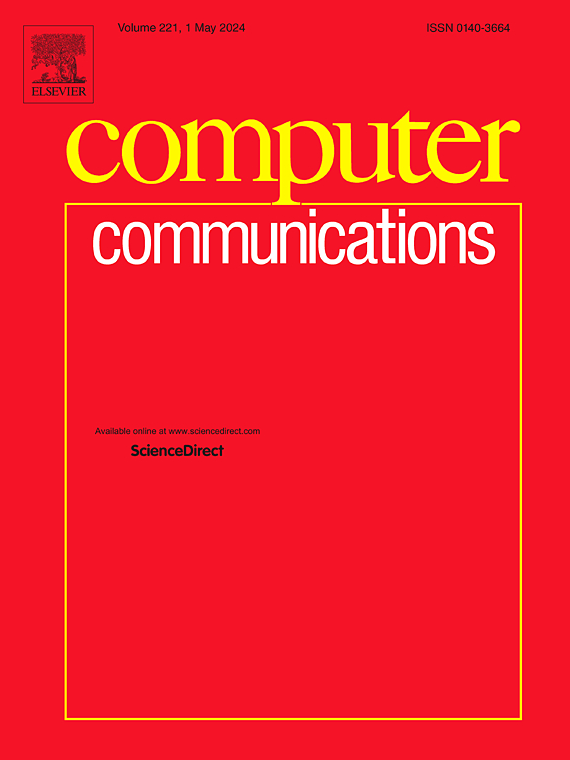A novel fuzzy-logic-based adaptive gate-controlled scheduling algorithm for time-aware shaper in TSN
IF 4.3
3区 计算机科学
Q1 COMPUTER SCIENCE, INFORMATION SYSTEMS
引用次数: 0
Abstract
Time-sensitive networking (TSN) is critical for real-time, industrial, and mission-critical applications that require deterministic communication. Scheduling time-triggered flows in TSN’s time-aware shaper (TAS) mechanism constitute an NP-hard problem, where the inherent trade-off between computational complexity and scheduling optimality persists. Exact algorithms achieve precision via exhaustive search mechanisms at prohibitive costs, while heuristic algorithms sacrifice fidelity to accelerate execution under complex network scenarios. This paper addresses these challenges through a novel rule-based framework that employs a fuzzy logic system to dynamically select algorithms, ensuring adaptation to complex requirements in diverse scenarios. In addition, a dynamic switching algorithm is proposed to intelligently select the most suitable scheduling method based on real-time network conditions and task requirements. Compared with traditional exact algorithms, our approach reduces computation time by over 35% in large-scale networks while meeting time constraints. In small-scale networks, it increases the scheduling success ratio by 20% compared to heuristic methods, particularly when higher accuracy is required. The proposed framework establishes an innovative analytical perspective for TAS traffic scheduling challenges by enabling self-adaptive algorithm matching across varying scheduling demands, rather than constraining specific algorithms to predefined operational scenarios.
TSN中基于模糊逻辑的自适应门控调度算法
时间敏感网络(TSN)对于需要确定性通信的实时、工业和任务关键型应用程序至关重要。在TSN的时间感知整形器(TAS)机制中,调度时间触发流构成了一个np困难问题,其中计算复杂性和调度最优性之间的内在权衡仍然存在。精确算法通过穷举搜索机制以高昂的代价实现精度,而启发式算法牺牲保真度以加速复杂网络场景下的执行。本文通过一个新的基于规则的框架来解决这些挑战,该框架采用模糊逻辑系统来动态选择算法,确保适应不同场景下的复杂需求。此外,提出了一种动态切换算法,根据实时网络状况和任务要求,智能选择最合适的调度方法。与传统的精确算法相比,我们的方法在满足时间限制的情况下,将大规模网络的计算时间减少了35%以上。在小规模网络中,与启发式方法相比,它将调度成功率提高了20%,特别是在需要更高精度的情况下。提出的框架通过支持跨不同调度需求的自适应算法匹配,而不是将特定算法限制在预定义的操作场景中,为TAS交通调度挑战建立了一个创新的分析视角。
本文章由计算机程序翻译,如有差异,请以英文原文为准。
求助全文
约1分钟内获得全文
求助全文
来源期刊

Computer Communications
工程技术-电信学
CiteScore
14.10
自引率
5.00%
发文量
397
审稿时长
66 days
期刊介绍:
Computer and Communications networks are key infrastructures of the information society with high socio-economic value as they contribute to the correct operations of many critical services (from healthcare to finance and transportation). Internet is the core of today''s computer-communication infrastructures. This has transformed the Internet, from a robust network for data transfer between computers, to a global, content-rich, communication and information system where contents are increasingly generated by the users, and distributed according to human social relations. Next-generation network technologies, architectures and protocols are therefore required to overcome the limitations of the legacy Internet and add new capabilities and services. The future Internet should be ubiquitous, secure, resilient, and closer to human communication paradigms.
Computer Communications is a peer-reviewed international journal that publishes high-quality scientific articles (both theory and practice) and survey papers covering all aspects of future computer communication networks (on all layers, except the physical layer), with a special attention to the evolution of the Internet architecture, protocols, services, and applications.
 求助内容:
求助内容: 应助结果提醒方式:
应助结果提醒方式:


